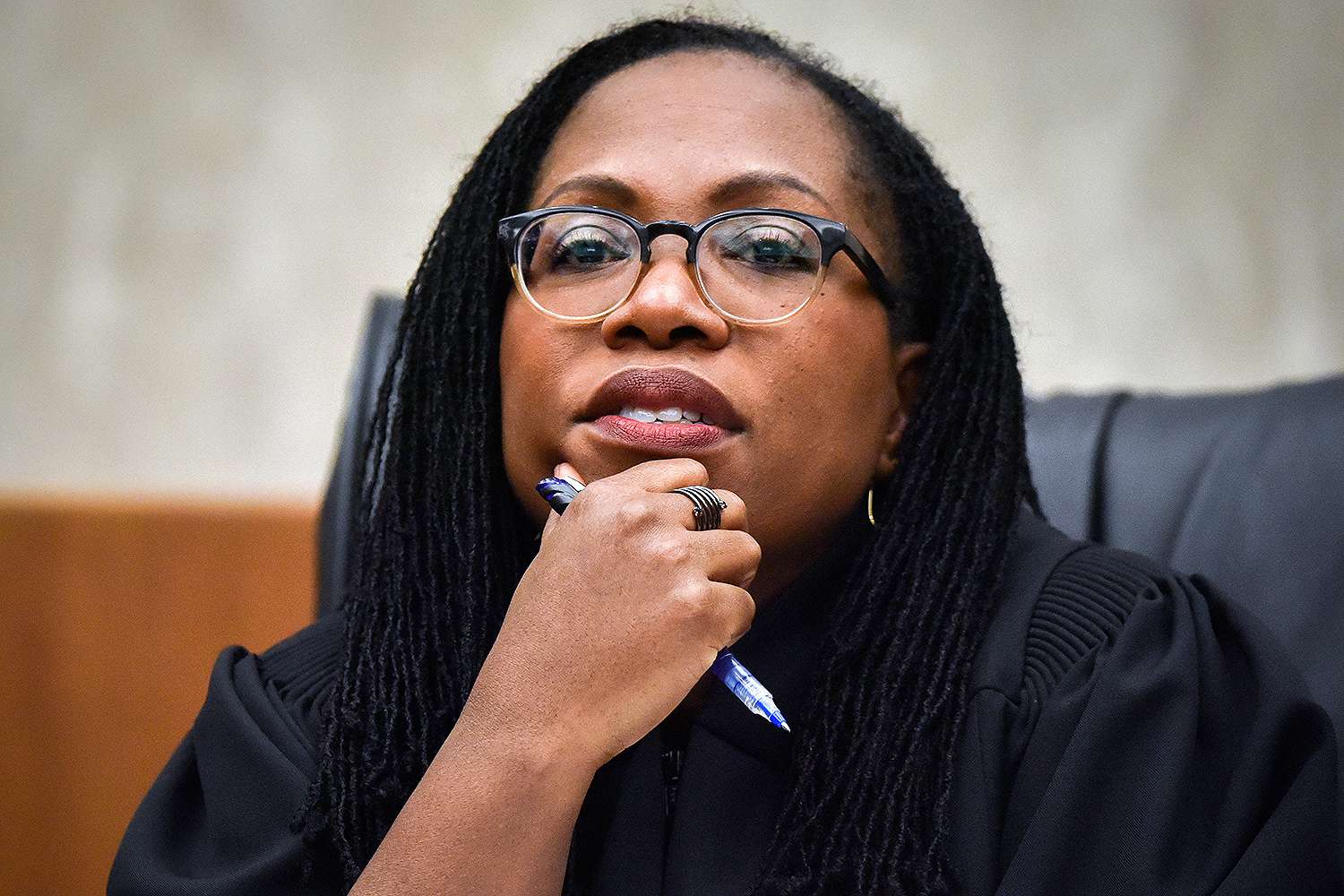Biden’s First Judicial Picks Include Black Woman Viewed as His Potential Supreme Court Nominee

Among President Joe Biden's first set of federal judicial nominations is one name already igniting speculation about future Supreme Court nominees: U.S. District Court Judge Ketanji Brown Jackson, widely viewed as a potential historic pick for the country's highest court.
Jackson, 50, was announced Tuesday as Biden's pick to serve on the U.S. Court of Appeals for the District of Columbia, where she would take the place of Judge Merrick Garland, who resigned when he was recently confirmed as U.S. attorney general.
The D.C. circuit is viewed as a stepping stone to the Supreme Court, and Biden's choice of Jackson only fueled speculation that she would be on his short list for a nominee there should a current justice retire.
(Of the court's remaining three liberal judges, Stephen Breyer is the oldest at 82.)
Biden has pledged to name an African-American woman to the Supreme Court if there is a vacancy. Jackson was among 11 judicial nominees announced this week.
At a briefing following the announcement, White House Press Secretary Jen Psaki reiterated Biden's commitment to nominating a Black woman to the Supreme Court, saying "absolutely" when asked if the promise still stands.
"I think there is an incredible group of nominees the president announced today … This is a priority for him, but our focus is getting the Senate to confirm this group of nominees and to continue to build … a pipeline of additional highly qualified nominees who are going to reflect the values the president has outlined," Psaki said.
"This trailblazing slate of nominees draws from the very best and brightest minds of the American legal profession," the president said in a statement announcing his nominees. "Each is deeply qualified and prepared to deliver justice faithfully under our Constitution and impartially to the American people — and together they represent the broad diversity of background, experience, and perspective that makes our nation strong."
Jackson was first appointed to the federal court by President Barack Obama in 2013, winning bipartisan Senate confirmation.
She previously served as a vice chair of the United States Sentencing Commission and clerked for Supreme Court Justice Breyer from 1999 to 2000. She graduated with honors from Harvard College and Harvard Law School, where she served as an editor of the law review.
During his presidency, Donald Trump nominated three judges to the Supreme Court: conservatives Neil Gorsuch, Brett Kavanaugh, and Amy Coney Barrett — the latter after Republicans reversed a previous argument about confirming judges amid an election.
Trump's nominations of Kavanaugh and Barrett proved particularly controversial — the first because of allegations of sexual assault and the second due to a process rushed in the wake of the September death of the late Justice Ruth Bader Ginsburg, a liberal icon.
Should Breyer retire and be replaced with a progressive judge, it wouldn't change the makeup of the court, which is currently comprised of six conservative-leaning judges and three liberal-leaning judges.
Breyer's retirement would, however, ensure that President Biden could pick his replacement.
The other judicial choices announced Tuesday include a number of jurists who would make history if confirmed to lifetime appointments on the federal bench.
Those include three Black women chosen for Circuit Court vacancies and other candidates who would be "the first Muslim American federal judge in U.S. history, the first AAPI woman to ever serve on the U.S. District Court for the District of D.C., and the first woman of color to ever serve as a federal judge for the District of Maryland," according to the White House statement.
Source: Read Full Article

